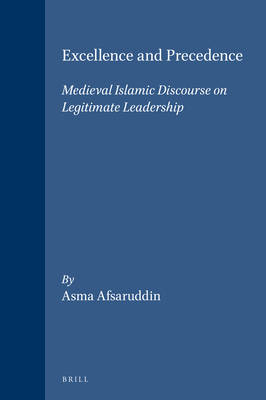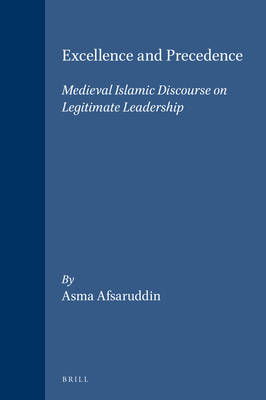
- Afhalen na 1 uur in een winkel met voorraad
- Gratis thuislevering in België vanaf € 30
- Ruim aanbod met 7 miljoen producten
- Afhalen na 1 uur in een winkel met voorraad
- Gratis thuislevering in België vanaf € 30
- Ruim aanbod met 7 miljoen producten
Zoeken
€ 256,45
+ 512 punten
Omschrijving
This volume focuses on how legitimate leadership came to be defined in the formative period of Islam in terms of two key Qur'anic concepts: moral excellence (faḍl/faḍīla) and precedence (sābiqa). These two concepts undergirded a specific discourse on leadership which developed in the first century of Islam. This discourse is reconstructed through careful scrutiny of the manāqib literature in particular, which contains detailed accounts of the excellences attributed to the Rāshidūn caliphs. This book stresses that all early factions, including the proto-Shī'a, subscribed to the Qur'ānically-mandated vision of a righteous polity guided by its most morally excellent members. Such a conclusion forces us to rethink the nature of leadership in the earliest period and reconsider the criteria invoked to establish its legitimacy.
Specificaties
Betrokkenen
- Auteur(s):
- Uitgeverij:
Inhoud
- Aantal bladzijden:
- 324
- Taal:
- Engels
- Reeks:
- Reeksnummer:
- nr. 36
Eigenschappen
- Productcode (EAN):
- 9789004120433
- Verschijningsdatum:
- 20/02/2002
- Uitvoering:
- Hardcover
- Formaat:
- Genaaid
- Afmetingen:
- 167 mm x 243 mm
- Gewicht:
- 730 g

Alleen bij Standaard Boekhandel
+ 512 punten op je klantenkaart van Standaard Boekhandel
Beoordelingen
We publiceren alleen reviews die voldoen aan de voorwaarden voor reviews. Bekijk onze voorwaarden voor reviews.








